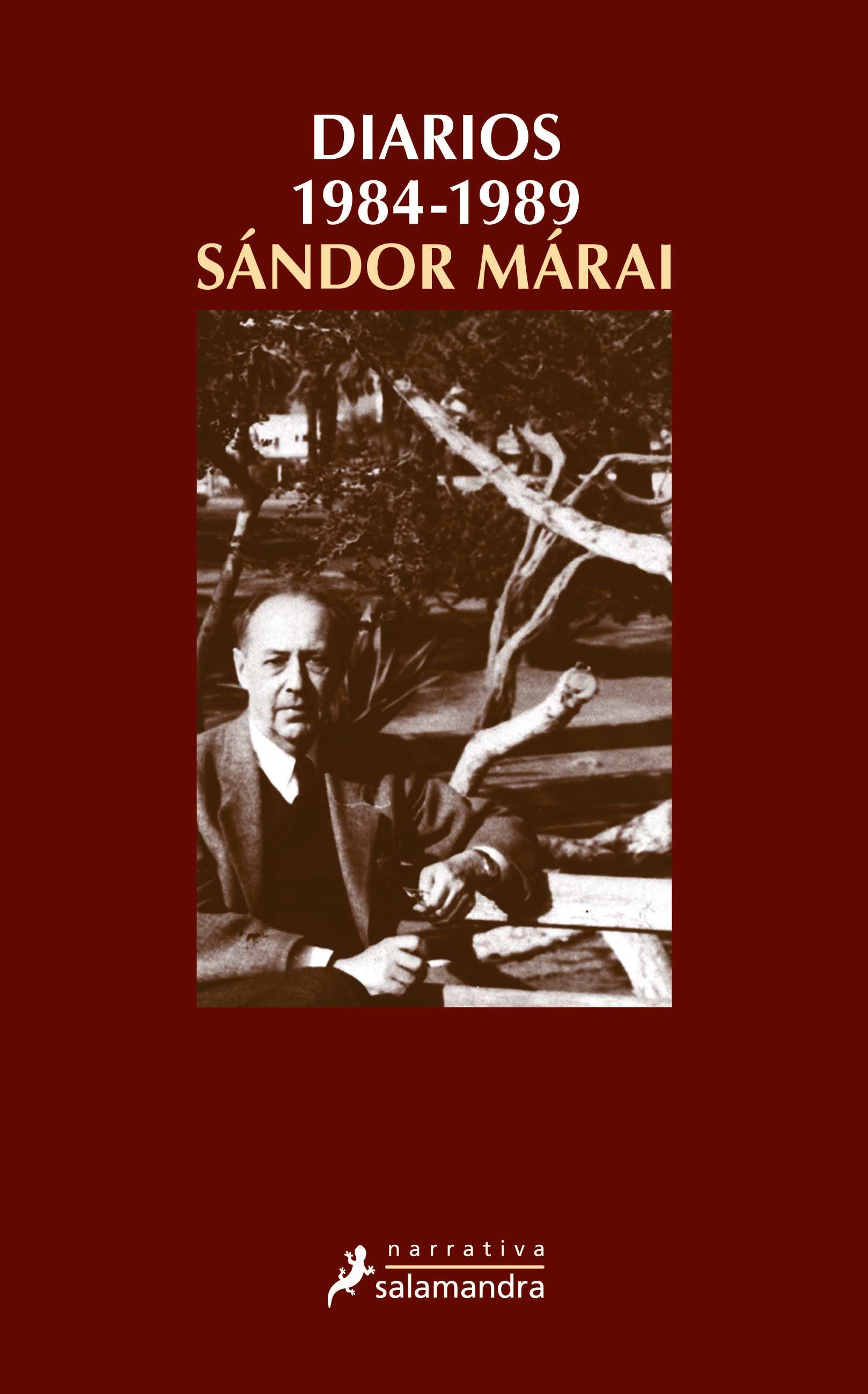
Diarios, 1984-1989, primer volumen de los diarios que se traduce al español, nos acerca al Sándor Márai más íntimo y desgarrador, al hombre que, reconciliado con la inminencia de la muerte, pasa revista a sus inquietudes más hondas y esenciales. Celebrado por su inusitado talento para reflejar en sus novelas el esplendor y crepúsculo del humanismo centroeuropeo, y testigo minuciosode los grandes acontecimientos que conmovieron Europa en la primeramitad del siglo pasado, Sándor Márai vio como su obra quedaba relegada al olvido tras abandonar la Hungría comunista en 1948. Después de un azaroso exilio que lo llevó a la ciudad californiana de San Diego, muy lejos de la vieja Europa, pasó sus últimos añosen un aislamiento casi absoluto. Privado de su público natural, Márai escribió cinco de los seis tomos de sus diarios en el exilio,el último, redactado entre1984y 1989, es un testimonio apasionante y profundamente conmovedor de un hombre decidido a enfrentarse sin ambages con la muerte. Alternando recuerdos personales, instantáneas reveladoras de la vida cotidiana, con comentarios sobre diversos temas de actualidad yapuntes sobre la lectura y la tarea de escribir, el gran autor húngaro -que destaca por la potencia de su palabra y la perfectalucidezde su mente- se convierte en observador implacable de su propio deterioro físico y narra, sin embellecerlo, el último drama de su existencia: la enfermedad y muerte de su amada esposa, Lola Matzner, con quien durante sesenta y dos años lo había compartido todo.Márai reflexiona sobre el luto y la soledad, cada vez más insoportable, al tiempo que se prepara para el momento final: «Estoyesperando el llamamiento a filas, no me doy prisa, pero tampoco quiero aplazar nada por culpa de mis dudas. Ha llegado la hora.» Escasas semanas después de esta anotación, Sándor Márai se quitaba la vida con un disparo. La crítica ha dicho... «Las escuetas y certeras anotaciones se leen con una angustia creciente, con tristeza y respeto.» Die Zeit «Lapidario, preciso, valiente y emocionante.» Neue Zürcher Zeitung
Author

Sándor Márai (originally Sándor Károly Henrik Grosschmied de Mára) was a Hungarian writer and journalist. He was born in the city of Kassa in Austria-Hungary (now Košice in Slovakia) to an old family of Saxon origin who had mixed with magyars through the centuries. Through his father he was a relative of the Ország-family. In his early years, Márai travelled to and lived in Frankfurt, Berlin, and Paris and briefly considered writing in German, but eventually chose his mother language, Hungarian, for his writings. He settled in Krisztinaváros, Budapest, in 1928. In the 1930s, he gained prominence with a precise and clear realist style. He was the first person to write reviews of the work of Kafka. He wrote very enthusiastically about the Vienna Awards, in which Germany forced Czechoslovakia and Romania to give back part of the territories which Hungary lost in the Treaty of Trianon. Nevertheless, Márai was highly critical of the Nazis as such and was considered "profoundly antifascist," a dangerous position to take in wartime Hungary. Marai authored forty-six books, mostly novels, and was considered by literary critics to be one of Hungary's most influential representatives of middle class literature between the two world wars. His 1942 book Embers (Hungarian title: A gyertyák csonkig égnek, meaning "The Candles Burn Down to the Stump") expresses a nostalgia for the bygone multi-ethnic, multicultural society of the Austro-Hungarian Empire, reminiscent of the works of Joseph Roth. In 2006 an adaptation of this novel for the stage, written by Christopher Hampton, was performed in London. He also disliked the Communist regime that seized power after World War II, and left – or was driven away – in 1948. After living for some time in Italy, Márai settled in the city of San Diego, California, in the United States. He continued to write in his native language, but was not published in English until the mid-1990s. Márai's Memoir of Hungary (1944-1948) provides an interesting glimpse of post World War II Hungary under Soviet occupation. Like other memoirs by Hungarian writers and statesmen, it was first published in the West, because it could not be published in the Hungary of the post-1956 Kádár era. The English version of the memoir was published posthumously in 1996. After his wife died, Márai retreated more and more into isolation. He committed suicide by a gunshot to his head in San Diego in 1989. Largely forgotten outside of Hungary, his work (consisting of poems, novels, and diaries) has only been recently "rediscovered" and republished in French (starting in 1992), Polish, Catalan, Italian, English, German, Spanish, Portuguese, Czech, Danish, Icelandic, Korean, Dutch, and other languages too, and is now considered to be part of the European Twentieth Century literary canon.